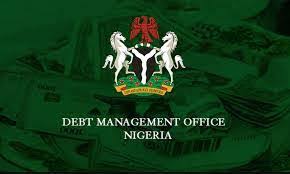
States hit by 68% spike in foreign debt payments
In the first half of 2025, states as a whole spent over N235.58 billion on fulfilling their external debt commitments. This is based on an examination of data from the National Bureau of Statistics' Federal Account Allocation Committee disbursement.
When compared to the N139.92 billion recorded in the same time of 2024, the sum indicates a steep increase of N95.65 billion, or 68.4%, demonstrating the increasing burden of dollar-denominated debt repayments on state resources following the depreciation of the naira.
It is important to remember that the federal government uses an irrevocable standing payment order agreement to handle external debt servicing on behalf of the states. This arrangement permits automatic deductions from the states' monthly FAAC contributions.
In accordance with this procedure, the Office of the Accountant-General of the Federation, in collaboration with the Federal Ministry of Finance and the Central Bank of Nigeria, deducts the agreed debt service amount from the approved external loan and the subsidiary agreement before allocating funds to the states.
An investigation indicates that January 2025 started with a significant outflow of N40.09 billion for the payment of external debt, which is significantly more than the N9.88 billion paid in the same month in 2024. This was the largest single-month payback in the first half of the year and represented a surge of over 305% year over year.
The total amount paid by the states in February was N39.10 billion, which was a 59.5 percent increase over the N24.53 billion paid in February 2024, albeit being somewhat less than January's amount.
The same N39.10 billion was paid in March 2025, which is slightly less than the N40.41 billion paid in March 2024. This is because of the unusual spike that happened in March of last year when some states made sizable payments to settle maturing obligations.
The pattern held steady from April to June 2025, with monthly debt servicing outflows of precisely N39.10 billion, indicating that the local currency was relatively stable during the second quarter of 2025. When compared to the N21.70 billion paid in each of those months in 2024, this indicates an 80.1% increase.
Long regarded as the nation's economic hub, Lagos State continued to be the biggest contributor to the total debt servicing cost, sending in a total of N49.58 billion in the first half of 2025. Compared to the N32.44 billion registered during the same period last year, this represents a 52.8% rise.
Lagos's foreign debt repayment is more than twice as high as that of any other state, which is a result of both the impact of exchange rate weakening on dollar-linked obligations and the city's history of borrowing for major infrastructure projects.
Rivers State came in second with N26.34 billion, which was more than 47% greater than the N4.62 billion in the first half of 2024. With N24.47 billion, Kaduna State came in third place, a slight 6% increase over the N23.09 billion paid the year before.
Edo State finished in the top five with N10.18 billion, a 72.6% increase over the N5.90 billion paid in 2024, while Ogun State came in fourth with N12.57 billion, almost tripling the N4.29 billion recorded in the first half of last year.
In the first half of 2025, these five states collectively spent N123.14 billion, or around 52.3% of total external debt servicing payments made by the 36 states. This underscores the concentration of foreign debt risk in a limited number of subnationals.
Jigawa State had the lowest external debt servicing bill at the lower end of the spectrum, coming in at N1.39 billion in the first half of 2025, up 54.3% from N900.54 million in the same period of 2024. Yobe paid N1.46 billion, a 77.0 percent increase from N823.59 million in 2024, while Benue came in second with N1.44 billion, up 62.1 percent from N890.16 million the previous year.
Zamfara paid N1.56 billion, which was 75.0% more than the N891.82 million recorded during the same period last year, while Borno State recorded N1.52 billion, up 128.1 percent from N668.07 million. Although Plateau's payback of N1.81 billion was 125.8% higher than the N803.28 million paid in 2024, it was still one of the states with relatively modest repayments.
Even while these governments' foreign loan portfolios are lower than those of their higher-ranked peers, the notable annual increases highlight how exchange rate depreciation affects the cost of servicing external debt on a national level.
Interesting regional patterns can be seen in the data. Lagos and Ogun take the lead in the South-West, demonstrating a vigorous use of foreign loans to finance infrastructure and other development projects. These loans are frequently granted at concessional rates, but they are also highly susceptible to changes in exchange rates.
Rivers and Edo both reported significant increases in the South-South, but Cross River stayed high at N9.82 billion, up 24.8% from N7.87 billion in 2024. Kaduna continues to be the biggest payer in the North, while Bauchi recorded repayments of N8.13 billion, up 28.5% from N6.33 billion the previous year.





